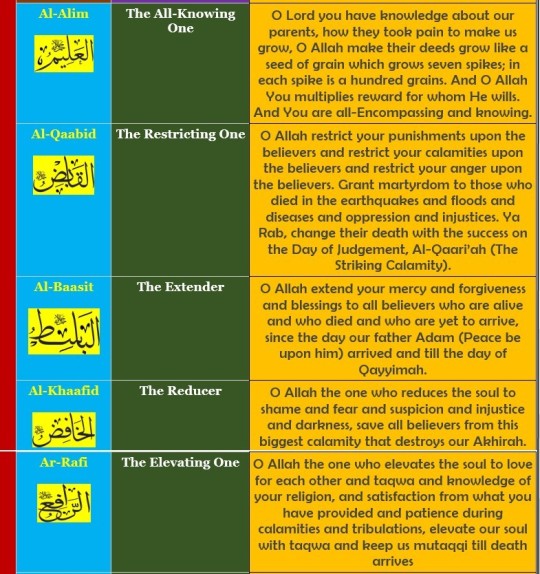#quran 2:155
Text


#my post#postlarım#quotes#alıntı#alıntılar#tumblr türkiye#spilled ink#ramadan mubarak#ramadan#ramadan kareem#holy quran#quran quotes#quran kareem#quran#ramazan#on bir ayın sultanı#quran 2:155#2:155#islamdaily#muslim academia#bakara sûresi#bakara#hayırlı cumalar#cumamızmübarekolsun#happy friday#jummamubarak#jummablessings
35 notes
·
View notes
Text



سورة البقرة أية ١٥٥ - ١٥٧
Quran 2:155 - 2:157
#ان لله وان اليه راجعون#الفرج قريب ان شاء الله#يا رب لطفك يا رب#gaza#Palestine#free palestine#gazaunderattack#save gaza
282 notes
·
View notes
Text
Emphasis of Good Character and Manners in Islam

Islam is not just a set of rituals or beliefs; it is a comprehensive way of life that emphasises the importance of good character and manners. The teachings of Islam, as conveyed through the Quran and Hadith collections, provide invaluable guidance on how to conduct oneself with integrity, kindness, and compassion.
The Prophet Muhammed said: “Nothing is heavier upon the scale of good deeds on the day or judgement than Good character, truly Allah hates the vulgar and the obscene.”
Good character and manners hold a central place in Islam, reflecting the inner beauty of a person’s heart. Prophet Muhammad (peace be upon him) emphasised the significance of good character, stating,
“The best among you are those who have the best manners and character” (Sahih Bukhari).
Islam encourages its followers to be kind and compassionate towards all beings, whether human or animal.
There is no Muslim who plants a tree or sows seeds and then a bird, or a person, or an animal eats from it except that it is regarded as a charity for him. “ — Sahih Bukhari
The Prophet Muhammad (peace be upon him) said, “Kindness is a mark of faith, and whoever is not kind has no faith” (Sahih Muslim).
This teaching showcases the importance of showing mercy and empathy in all interactions as well as being a good caretaker of our earth we share with other creatures of God.
Respect for Others
Respect for others, regardless of their background or beliefs, is a fundamental principle in Islam. The Quran instructs Muslims to “speak to people kindly” (Quran 2:83) and to “repel evil with that which is better” (Quran 41:34), promoting an understanding and harmonious society.
“You have your way, and I have my Way.” Quran 109:6
Honesty and Integrity
Honesty and integrity are highly valued virtues in Islam. The Prophet Muhammad (peace be upon him) said, “Truthfulness leads to righteousness, and righteousness leads to Paradise” (Sahih Muslim, Book 1, Hadith 79). Muslims are encouraged to be truthful in their words and actions, even when faced with challenges or difficulties.
“The honest and trustworthy merchant will be with the prophets, the truthful, and the martyrs.” Sunan al-Tirmidhī 1209
Prophet Muhammed (blessings and peace of Allah be upon him) said: “There should be neither harming nor reciprocating harm.” (Narrated by Ibn Majah, 2340)
He also said: “By the One in Whose hand is the soul of Muhammad, no one of you truly believes until he loves for his brother what he loves for himself of good.”
Patience and Forbearance
Patience and forbearance are qualities that Islam encourages its followers to cultivate. The Quran describes the believers as those who “restrain anger and pardon people” (Quran 3:134) and advises, “Be patient over what befalls you” (Quran 31:17). Through patience, Muslims learn to navigate life’s trials with grace and resilience, having faith and certainty that whatever bad befalls a believer, through patience and perseverence, good will come out of that test.
“We will certainly test you with a touch of fear and famine and loss of property, life, and crops. Give good news to those who patiently endure..” Quran 2:155
Humility and Modesty
Humility and modesty are characteristics that Islam promotes as essential for spiritual growth. The Prophet Muhammad (peace be upon him) said, “Whoever humbles himself for the sake of Allah, Allah will elevate him” (Sahih Muslim, Book 32, Hadith 6264). Humility allows individuals to recognise their own shortcomings and seek improvement with sincerity.
The emphasis on good character and manners in Islam, as reflected in the Hadith collections and Quranic verses, serves as a beacon of guidance for Muslims seeking to embody the teachings of their faith and emulating the character of the best man to walk the Earth. By practicing kindness, compassion, respect, honesty, patience, and humility, Muslims strive to fulfil their role as ambassadors of Islam, contributing to a more harmonious and strong community with good family and societal ties.

10 notes
·
View notes
Text
وَبَشِّرِ ٱلصَّـٰبِرِينَ
Give good news to those who patiently endure
ٱلَّذِينَ إِذَآ أَصَـٰبَتْهُم مُّصِيبَةٌۭ قَالُوٓا۟ إِنَّا لِلَّهِ وَإِنَّآ إِلَيْهِ رَٰجِعُونَ
who say, when struck by a disaster, “Surely to Allah we belong and to Him we will ˹all˺ return.”
أُو۟لَـٰٓئِكَ عَلَيْهِمْ صَلَوَٰتٌۭ مِّن رَّبِّهِمْ وَرَحْمَةٌۭ ۖ وَأُو۟لَـٰٓئِكَ هُمُ ٱلْمُهْتَدُونَ
They are the ones who will receive Allah’s blessings and mercy. And it is they who are ˹rightly˺ guided.
(Quran 2:155-157)
23 notes
·
View notes
Text

Allah calls Himself Ar-Raheem— The Bestower of Mercy, The Most Compassionate— on 93 occasions in the Quran, 112 times in the basmalah. Ar-Raheem is the One who bestows His continuous mercy on all of creation and who bestows even more grace and greater rewards in response to the good deeds of the believers!
The Most Compassionate, the Bestower of Mercy
Both raheem and rahmaan come from the root raa-haa-meem, which points to four main meanings. The first meaning is to have gentleness and to love, the second is to have mercy. The third meaning is to show favour, and the fourth meaning is to have all that is required for beneficence.
This root appears 339 times in the Quran in nine derived forms. Examples of these forms are turhamoona (“receive mercy”), ruhman (in affection”), and ar-raahimeena (“[of]those who show mercy”).
Linguistically, raheem shows continuity or repetition (the ending of –ee(m)). For example jameel means beautiful and kareem means honourable or generous, which reflect characteristics or states. Related to Ar-Rahmaan, Ar-Raheem refers to the action or the effect of Allah’s intense mercy on creation, indicating how this mercy encompasses creatures. Imagine a shower of blessings, and imagine the shower as very intense and continuous. Allah is the intensely and the continuously Merciful.
Ar-Raheem Himself says: He said, “I will ask forgiveness for you from my Lord. Indeed, it is He who is the Forgiving, the Merciful [Quran, 12:98] . . . [O Muhammad], inform My servants that it is I who am the Forgiving, the Merciful [Quran, 15:49] and. . . And indeed, your Lord – He is the Exalted in Might, the Merciful. [Quran, 26:9]
The merciful of the creation
Certain names Allah ‘azza wa jall uses only to describe Himself. He says: Say: Invoke Allah or invoke Ar-Rahmaan, by whatever name you invoke Him (it is the same), for to Him belong the Best names. [Quran, 17:110] As for Allah’s name Ar-Raheem, Allah ‘azza wa jall has described others by it: Verily, there has come unto you a Messenger from amongst yourselves. It grieves him that you should receive any injury or difficulty. He (Muhammad) is anxious over you (to be rightly guided) for the believers kind and merciful. [Quran 9:128]
Being kind to others is a blessing
Know that kind and compassionate treatment is liked by Ar-Raheem and is in fact His blessing from Him to you. A person who is hardhearted is deprived of this divine blessing and mercy. Aishah radiyallahu ‘anha reported that some Bedouins came to the Messenger of Allah salallahu ‘alayhi wasallam and asked, ‘Do you kiss your children?’ He replied, ‘Yes.’ They then said: ‘By Allah, we do not kiss them.’ He then replied, ‘I cannot help you if Allah has snatched kindness from your hearts.’ [Al-Bukharee, Muslim] So open up your heart to others and constantly warm your heart with the remembrance of Allah ‘azza wa jall.
How can you live by this name?
1. Obey Ar-Raheem, hold onto the Quran.
And He is Merciful (Raheem) to the believers [Quran, 33:43]. Allah ‘azza wa jall mentions ways for you in the Quran to receive His special mercy as a believer. He says: and obey Allah and His Messenger so that you all may receive Mercy [3:132]. This mercy is only reserved for those who try their best to hold on to the guidelines, prohibitions, and commandments mentioned in the Quran and Sunnah. And this is a book, We have sent it down as one blessed, so follow it and fear Allah so that you all may receive Mercy [6:155].
2. Strive for taqwa.
O you who have believed, have taqwa of Allah and believe in His Messenger; He will [then] give you a double portion of His mercy and make for you a light by which you will walk and forgive you; and Allah is Forgiving and Merciful [Quran, 57:28]. Taqwa can be described as consciousness which inspires you to be on guard against wrong action and eager for actions which please Allah ‘azza wa jall and to stay away from those actions which displease and anger him. Tips to increase your taqwa are: be alert to whatever may divert you from Allah, and be alert to your desires that may lead you to the forbidden. Ascribe each success, material or spiritual, to Allah only, and long for His pleasure in everything you do, big or small. Renew your emaan by reflecting on Ar-Raheem’s creation and remember death by living each day with the knowledge it can happen anytime.
3. Pray four units of prayer before ‘asr.
The Prophet salallahu ‘alayhi wa sallam said: May Allah have mercy on one who prays four raka’aat before the ‘asr Prayer [At-Tirmidhee].
4. Listen to the Quran attentively.
And when the Quran is recited, listen to it with attention, that you may receive mercy [Quran, 7:204]. Have you noticed the effect on your heart when you sit and listen to the Quran with your ears and heart, with no distractions around you? The more you respect and honour the Book of Allah, the more cure, guidance and mercy you will receive through it.
5. Turn to Ar-Raheem.
Whenever Ar-Raheem gives you a trial, know that no one can give you a way out but Him, so turn to Him as soon as hardship hits you. And if Allah should touch you with adversity, there is no remover of it except Him; and if He intends for you good, then there is no repeller of His bounty. He causes it to reach whom He wills of His servants. And He is the Forgiving, the Merciful [Quran, 10:107]. No matter what sin you commit, Allah ‘azza wa jall forgives you if you repent of it. That’s the beauty of Al-Ghafoor Ar-Raheem.
6. Ask Ar-Raheem for compassion.
The Prophet salallahu ‘alayhi wa sallam said: He who is not merciful to our young (people) and who shows no respect to our elderly is not one of us. [At-Tirmidhee] Ask Allah ‘azza wa jall to bless you with a soft heart and to enable you to feel compassion towards your relatives, friends, and the whole Muslim nation. How many do not feel responsible or attached to the ummah? The Prophet salallahu ‘alayhi wa sallam said: The similitude of believers in regard to mutual love, affection, fellow-feeling is that of one body; when any limb of it aches, the whole body aches, because of sleeplessness and fever. [Muslim]
O Allah, Ar-Raheem, we know that You bestow Your mercy perfectly and continuously on all that exists. Guide us to hold onto Your book and the sunnah so we may attain your special mercy and adorn our actions, speech, and thoughts with a deep sense of taqwa. Make us turn to You at all times, asking for Your Mercy, and make us compassionate so we will enter through the gates of Your paradise by Your mercy, ameen!
#allah#islam#revert help team#asma al husna#revert help#muslim#ayat#daily#allah’s name#dua#pray#prayer#salah#muslimah#hijab#religion#reminder#mohammed#new muslim#new revert#new convert#how to convert islam#converthelp#convert islam#become a muslim#welcome to islam#daily ayat#prophet#god#revert
17 notes
·
View notes
Text
The Calamity- Blessings or Curse
Allah says, “We will certainly test you with a touch of fear and famine and loss of property, life, and crops. Give good news to those who patiently endure, and when disaster strikes them, they say, "Indeed we belong to Allah, and indeed to Him we will return." (إِنَّا لِلهِ وَإِنَّا إِلَيْهِ رَاجِعُونَ) Upon those are pardons and mercy from their Lord, and those are the rightly guided. (2:155-157)
The Prophet (ﷺ) said: “When Allah wills good for His slave, He hastens the punishment for him in this world, and when Allah wills ill for His slave, he withholds the punishment for his sins from him until he comes with all his sins on the Day of Resurrection.” Tirmidhi (2396)
Prophet (ﷺ) said “Every affair of a believer in every situation is always good, and this is possible for a believer only and none but a believer only. If something good happens to him, he is thankful for it and that is good for him. If something bad happens to him, he bears it patiently and say, (إِنَّا لِلهِ وَإِنَّا إِلَيْهِ رَاجِعُونَ) which is good for him.” (Muslim 2999).
It is clear that it is a blessings for one and a curse for one and its not required to be elaborated here. Quran defines CALAMINITY-Next



NB: Someone said, asking Darood (Salawat) is Shirk. It is an innovation by Persians after death of Prophet, compiled into Hadith.
Well I do not have knowledge of unseen. So, I have replaced it with the supplication for my most beloved Prophet (ﷺ) and his forefather Ibrahim (Peace, Blessings, mercy of Allah be upon him) in the same way as I ask supplication for myself, my family and whole believers who are my brothers and sister, my neighbour. Its supplication not Darood (salawat) to me and I think its clear now to him.
#quran#islam#allahﷻ#prophet muhammad#tumblog#calamity#natural disasters#war crimes#artificial disaster#war
15 notes
·
View notes
Text
Obstacles to Virtue - The Islamic Perspective
Introduction:
In Islam, the journey towards spiritual enlightenment and righteousness is marked by overcoming various obstacles that impede one's connection with Allah (God) and the fulfillment of one's purpose. These impediments, referred to as "snares of virtue," encompass pitfalls, delusions, and attachments that distract believers from the straight path (Al-Sirat al-Mustaqeem). Understanding and navigating these challenges are essential for Muslims seeking to attain inner peace and spiritual fulfillment.
Obstacles Hindering Virtue, Delusions Hindering the Will, and Attachments Binding the Heart:
• Ignorance and Weakness (Nafs): Ignorance of personal weaknesses (Nafs) and attachment to worldly desires (Hawa) obstruct virtue. Acknowledge and confront the lower self's inclinations through self-reflection, repentance (tawbah), and seeking forgiveness (istighfar).
As mentioned in the Quran (64:16), "So fear Allah as much as you are able and listen and obey and spend [in the way of Allah]; it is better for your selves. And whoever is protected from the stinginess of his soul - it is those who will be successful."
Examples include succumbing to anger, envy, or arrogance, and excessive indulgence in wealth, status, or physical pleasures.
• Trials and Tribulations (Fitnah) and Doubt (Shubha): Aversion to trials and tribulations (Fitnah) and doubt in Allah's guidance (Shubha) hinder the will. Embrace challenges as opportunities for spiritual growth and strengthen faith through regular recitation and reflection on the Quran.
As mentioned in the Quran (2:155), "And We will surely test you with something of fear and hunger and a loss of wealth and lives and fruits, but give good tidings to the patient."
Examples include facing illness or loss with resilience and questioning the authenticity of Islamic teachings.
• Seeking Approval and Ego-driven Pursuits (Riya and Kibr): Seeking approval from others (Riya) and ego-driven pursuits (Kibr) obstruct virtue. Perform acts of worship sincerely for the sake of Allah alone and foster humility by acknowledging Allah's greatness.
As mentioned in a Hadith narrated by Abu Huraira, the Prophet Muhammad (peace be upon him) said, "The first of man's deeds for which he will be called to account on the Day of Resurrection will be Salah. If it is found to be perfect, he will be safe and successful; but if it is incomplete, he will be unfortunate and a loser."
Examples include showing off in prayers or charity and looking down on others due to perceived superiority.
• Divine Decree (Qadar) and Self-Sufficiency (Ghurur): Ignorance of divine decree (Qadar) and illusion of self-sufficiency (Ghurur) hinder the will. Trust in Allah's wisdom and accept both blessings and trials with gratitude.
As mentioned in the Quran (64:11), "No disaster strikes except by permission of Allah. And whoever believes in Allah - He will guide his heart. And Allah is Knowing of all things."
Examples include questioning calamities and attributing success solely to personal effort.
• Accountability (Ghaflah) and Doubt in Afterlife (Shakk): Denial of accountability (Ghaflah) and doubt in the afterlife (Shakk) hinder the will. Increase awareness of death and strengthen belief in the Hereafter.
As mentioned in the Quran (35:45), "And if Allah were to impose blame on the people for what they have earned, He would not leave upon the earth any creature. But He defers them for a specified term. And when their time comes, then indeed Allah has ever been, of His servants, Seeing."
Examples include neglecting prayers or feeling skeptical about the consequences of one's actions.
• Restless Pursuit of Worldly Gains and Ego Identity (Hubb al-Dunya, Nafs): Restless pursuit of worldly gains (Hubb al-Dunya) and ego identity attachment (Nafs) bind the heart. Practice detachment from worldly possessions and strive for self-purification.
As mentioned in the Quran (57:20), "Know that the life of this world is but amusement and diversion and adornment and boasting to one another and competition in increase of wealth and children - like the example of a rain whose [resulting] plant growth pleases the tillers; then it dries and you see it turned yellow; then it becomes [scattered] debris. And in the Hereafter is severe punishment and forgiveness from Allah and approval. And what is the worldly life except the enjoyment of delusion."
Examples include excessive attachment to wealth and identifying oneself solely based on worldly desires.
• Fear-based Reliance and Worldly Status (Tawakkul, Jaah): Fear-based reliance on creation (Tawakkul) and ego-driven attachment to worldly status (Jaah) bind the heart. Strengthen trust in Allah's plan and cultivate contentment with one's station in life.
As mentioned in a Hadith narrated by Abu Huraira, the Prophet Muhammad (peace be upon him) said, "Whosoever seeks honor, Allah will honor him, and whosoever seeks humiliation, Allah will humiliate him."
Examples include excessive worry about the future and seeking validation from others at the expense of compromising values.
Conclusion:
In conclusion, recognizing and overcoming the obstacles, delusions, and attachments discussed is crucial for Muslims striving for spiritual growth and fulfillment. By understanding these challenges and implementing the practical guidance provided by the Quran and Hadith, believers can navigate the path of righteousness more effectively and draw closer to Allah. It is through sincere effort, self-reflection, and reliance on Allah's mercy that individuals can transcend these barriers and achieve inner peace and spiritual fulfillment in accordance with Islamic teachings.
Further Readings and Resources:
For those interested in delving deeper into the topics discussed, the following readings and resources are recommended:
• "Purification of the Heart: Signs, Symptoms, and Cures of the Spiritual Diseases of the Heart" by Hamza Yusuf.
• "The Inner Dimensions of Worship: From Ibn Qudamah's Mukhtasar Minhaj Al-Qasidin" translated by Imam Muhammad ibn Abdul Wahhab.
• "Reclaim Your Heart: Personal Insights on Breaking Free from Life's Shackles" by Yasmin Mogahed.
• "The Diseases of the Hearts and Their Cures" by Imam Ibn Taymiyyah.
• Seek guidance and knowledge from reliable scholars and spiritual mentors who can provide further insights and guidance on the journey towards spiritual growth in Islam. Additionally, actively engaging in community-based activities, such as study circles, Islamic lectures, and volunteering opportunities, can foster a supportive environment for spiritual development and learning. Finally, consistent reflection, prayer, and seeking forgiveness from Allah are essential practices to maintain sincerity and humility in one's spiritual journey.
6 notes
·
View notes
Text

"وَبَشِّرِ ٱلصَّـٰبِرِينَ"
"...BUT GIVE
good tidings
TO THE PATIENT"
Reference: QURAN ( 2 : 155 )
📜 This will be (Sadaqah Jariyah) an ongoing charity for you and me, so feel free to Save, Share or Re-post for other's benefit!
#رسول الله صلى الله عليه وسلم#تدبر القرآن#القران الكريم#القرآن#الاسلام#السعودية#الله#تلمبريات#islamic#islamicreminders#islamicart#islamicquotes#islamic design#islamicpost#الحديث#الأية#quranquotes#quransayings#islamic knowledge#islam#islamification#islamic quotes#islamic quote#beautiful quote#quoteoftheday#quranic#quran online#quran quotes#quraan#holy quran
4 notes
·
View notes
Note
Assalamualaikum Izin bertanya, mau tau sudut pandang mas yunus, menurut mas kehidupan ini susah ga si? Sebelumnya terimakasih
Wa'alaikumsalam anon, terimakasih sudah bertanya.
Susah mudah, senang sedihnya manusia dalam menjalani hidup itu tergantung pada bagaimana manusia membangun persepsi terhadap apa yang dihadapi.
Yang bikin berat hidup itu kan ujian ya? Sebagai orang yang beriman, yang namanya ujian itu pasti. Semua akan menghadapi, dan setiap orang akan diuji pada titik terlemahnya. Dalam bentuk apapun, maupun kapanpun.
Ketika kita sudah memahami bagaimana keniscayaan ujian dalam kehidupan, maka kita harus membangun persepsi yang benar agar mampu, bijak dan arif dalam menyikapinya.
Akan tetapi, dalam konteks ini persepsi yang kita bangun tidak boleh hanya menggunakan logika dan perasaan semata, melainkan tidak meninggalkan pedoman umat Islam, yaitu Al-Quran dan Sunnah-Nya.
Setelah kita tahu konsep itu, sekarang cari tahu kenapa sih manusia dikasih ujian sama Allah?
1. Allah ingin melakukan seleksi, mana orang yang beriman dengan sungguh dan dusta.
"Apakah manusia itu mengira bahwa mereka dibiarkan (saja) mengatakan: “Kami telah beriman”, sedang mereka tidak diuji lagi? Dan sesungguhnya Kami telah menguji orang-orang yang sebelum mereka, maka sesungguhnya Allah mengetahui orang-orang yang benar dan sesungguhnya Dia mengetahui orang-orang yang dusta." (QS al-Ankabut [29]: 2-3).
2. Untuk meningkatkan kualitas hidup kita
"Dan Kami pasti akan menguji kamu dengan sedikit ketakutan, kelaparan, kekurangan harta, jiwa, dan buah-buahan. Dan sampaikanlah kabar gembira kepada orang-orang yang sabar," (QS. Al-Baqarah : 155)
3. Diberikan kepada mereka yang mampu.
"Allah tidak membebani seseorang melainkan sesuai dengan kesanggupannya....." (Q.S. Al-Baqarah : 286)
4. Ujian sulit selalu ada kemudahan.
"Maka sesungguhnya bersama kesulitan ada kemudahan, sesungguhnya bersama kesulitan ada kemudahan." (Q.S. Al-Insyirah : 5-6)
Dsb masih banyak lagiiii!!!
Baik banget kan Allah kepada kita tuh...Semuanya ditujukan untuk kebaikan kita. Kita sebagai orang beriman tuh melihat ujian jangan dari sulitnya saja, tapi harus lihat rahmatNya. Tsiqah billah (percaya sama Allah) kuncinya!
Coba deh mulai sekarang setiap dikasih ujian, selalu kedepankan prasangka baik sama Allah. Kalau perlu, ngomong dalam hati sambil becandaan sok asik sama Allah, "Bakal ada kejutan apa lagi nih ya Allah? 😌". Kalau kita bisa gitu, asli seru bgt!
Cobain dah.
37 notes
·
View notes
Text
Based on this post
No one can escape from the tests of this worldly life in terms of pleasures and hardships but there is a good reason for us✨
Allah said: We will certainly test you with a touch of fear and famine and loss of property, life, and crops. Give good news to those who patiently endure (Quran 2:155)
Prophet Muhammad said: Whoever Allah wants good for, then Allah will test him
#necrozma#cosmog#nebby#lusamine#pokemon#legendary pokemon#pokemon sun moon#pokemon ultra sun#pokemon ultra moon#alola#pokemon usum#video#islam#islamic life#islamdaily
4 notes
·
View notes
Photo

Discover Quran Verses about #Trial @ https://quranindex.info/search/trial [2:155] #Quran #Islam
0 notes
Text



#Quran : 2:155 سورة البقرة
.
.
#allah #allahuakbar #muslim #muhammad #dua #jannah #sunnah #taqwa #surah #ayah #inshallah #instamuslim #mashallah #mashaallah #subhanallah #alhamdulilah #alhamdulilah #islamic
@younus_algohar @alratv
Watch #ALRATV Live on youtube at 10 PM UK time (3 AM PKT and 3:30 AM IST).
For Zikar-e-Qalb (Activation of the Spiritual Heart) contact Shaykh Amjad Gohar on this number +447401855568
How to Send Your Questions:
1. Message us on Facebook/alratv
2. Text or call our WhatsApp number: +44 7472 540642
0 notes
Link
🌌 Surah Al-A'raf's guidance on faith, justice, and compassion transcends time. Dive into its verses to discover a reservoir of wisdom that remains eternally relevant. 📚🌟 #SurahAlAraf #TimelessGuidance #EternalWisdom
0 notes
Text
The Power of Patience: Unlocking Inner Strength through Sabr Ki Dua
Introduction:
In the hustle and bustle of our daily lives, finding moments of tranquility and patience can be challenging. However, in Islam, patience, or ‘sabr,’ is considered a virtue and a source of immense strength. The Quran and Sunnah provide us with powerful tools, including specific duas (supplications), to help cultivate patience in our hearts and minds. In this blog, we will explore the significance of sabr ki dua and how incorporating it into our lives can lead to spiritual growth and inner peace.
Understanding Sabr in Islam:
Sabr, often translated as patience, is more than just enduring difficulties with a stoic demeanor. It encompasses perseverance, self-control, and the ability to maintain composure in the face of adversity. Islam teaches that true patience is not merely a passive endurance but an active and intentional response to challenges.
The Quranic Perspective:
The Quran, the holy book of Islam, emphasizes the importance of patience in numerous verses. One such verse is found in Surah Al-Baqarah (2:155), where Allah says: “And We will surely test you with something of fear and hunger and a loss of wealth and lives and fruits, but give good tidings to the patient.”
This verse serves as a reminder that challenges are a natural part of life, and facing them with patience is a means of earning Allah’s reward and mercy.
The Sunnah of Patience:
The life of Prophet Muhammad (peace be upon him) provides a practical example of patience in the face of adversity. His unwavering patience during times of personal loss, persecution, and hardship serves as an inspiration for believers. Following his Sunnah is an integral part of cultivating patience in our own lives.
Sabr Ki Dua – A Powerful Supplication:
In Islam, dua (supplication) is a way to communicate with Allah and seek His guidance, help, and mercy. There are specific duas that focus on seeking patience during challenging times. One such dua is:
“Rabbanaa afrigh ‘alaynaa sabran wa tawaffanaa Muslimeen.” Translation: “Our Lord, pour upon us patience and let us die as Muslims [in submission to You].” (Surah Al-A’raf 7:126)
Reciting this dua with sincerity and understanding its meaning can be a powerful tool in seeking Allah’s assistance in developing patience.
Tips for Incorporating Sabr Ki Dua into Daily Life:
Consistent Recitation: Make a habit of reciting the sabr ki dua regularly, especially during moments of stress or difficulty.
Reflect on Quranic Verses: Take time to read and reflect upon Quranic verses that discuss patience. Understanding the wisdom behind trials can help strengthen your resolve.
Model Prophet Muhammad’s Patience: Learn from the examples of patience in the life of Prophet Muhammad (peace be upon him) and strive to emulate his character.
Prayer and Meditation: Engage in regular prayers and meditation to foster a sense of inner peace and connection with Allah.
Conclusion:
Incorporating Sabr ki Dua into our lives is a profound way to tap into the reservoir of inner strength that Islam offers. Patience is not a passive acceptance of hardships but an active and intentional response guided by faith. By seeking Allah’s assistance through supplication and drawing inspiration from the Quran and Sunnah, we can navigate life’s challenges with grace and fortitude, ultimately attaining a higher level of spiritual growth and inner peace.
0 notes
Text
We will certainly test you with a touch of fear and famine and loss of property, life, and crops. Give good news to those who patiently endure—
Who, when disaster strikes them, say, "Indeed we belong to Allāh, and indeed to Him we will return."
Those are the ones upon whom there are blessings from their Lord, and mercy. And those are the ones who are on the right path.
Quran 2:155-157
0 notes
Text

Allah calls Himself Ar-Raheem— The Bestower of Mercy, The Most Compassionate— on 93 occasions in the Quran, 112 times in the basmalah. Ar-Raheem is the One who bestows His continuous mercy on all of creation and who bestows even more grace and greater rewards in response to the good deeds of the believers!
The Most Compassionate, the Bestower of Mercy
Both raheem and rahmaan come from the root raa-haa-meem, which points to four main meanings. The first meaning is to have gentleness and to love, the second is to have mercy. The third meaning is to show favour, and the fourth meaning is to have all that is required for beneficence.
This root appears 339 times in the Quran in nine derived forms. Examples of these forms are turhamoona (“receive mercy”), ruhman (in affection”), and ar-raahimeena (“[of]those who show mercy”).
Linguistically, raheem shows continuity or repetition (the ending of –ee(m)). For example jameel means beautiful and kareem means honourable or generous, which reflect characteristics or states. Related to Ar-Rahmaan, Ar-Raheem refers to the action or the effect of Allah’s intense mercy on creation, indicating how this mercy encompasses creatures. Imagine a shower of blessings, and imagine the shower as very intense and continuous. Allah is the intensely and the continuously Merciful.
Ar-Raheem Himself says: He said, “I will ask forgiveness for you from my Lord. Indeed, it is He who is the Forgiving, the Merciful [Quran, 12:98] . . . [O Muhammad], inform My servants that it is I who am the Forgiving, the Merciful [Quran, 15:49] and. . . And indeed, your Lord – He is the Exalted in Might, the Merciful. [Quran, 26:9]
The merciful of the creation
Certain names Allah ‘azza wa jall uses only to describe Himself. He says: Say: Invoke Allah or invoke Ar-Rahmaan, by whatever name you invoke Him (it is the same), for to Him belong the Best names. [Quran, 17:110] As for Allah’s name Ar-Raheem, Allah ‘azza wa jall has described others by it: Verily, there has come unto you a Messenger from amongst yourselves. It grieves him that you should receive any injury or difficulty. He (Muhammad) is anxious over you (to be rightly guided) for the believers kind and merciful. [Quran 9:128]
Being kind to others is a blessing
Know that kind and compassionate treatment is liked by Ar-Raheem and is in fact His blessing from Him to you. A person who is hardhearted is deprived of this divine blessing and mercy. Aishah radiyallahu ‘anha reported that some Bedouins came to the Messenger of Allah salallahu ‘alayhi wasallam and asked, ‘Do you kiss your children?’ He replied, ‘Yes.’ They then said: ‘By Allah, we do not kiss them.’ He then replied, ‘I cannot help you if Allah has snatched kindness from your hearts.’ [Al-Bukharee, Muslim] So open up your heart to others and constantly warm your heart with the remembrance of Allah ‘azza wa jall.
How can you live by this name?
1. Obey Ar-Raheem, hold onto the Quran.
And He is Merciful (Raheem) to the believers [Quran, 33:43]. Allah ‘azza wa jall mentions ways for you in the Quran to receive His special mercy as a believer. He says: and obey Allah and His Messenger so that you all may receive Mercy [3:132]. This mercy is only reserved for those who try their best to hold on to the guidelines, prohibitions, and commandments mentioned in the Quran and Sunnah. And this is a book, We have sent it down as one blessed, so follow it and fear Allah so that you all may receive Mercy [6:155].
2. Strive for taqwa.
O you who have believed, have taqwa of Allah and believe in His Messenger; He will [then] give you a double portion of His mercy and make for you a light by which you will walk and forgive you; and Allah is Forgiving and Merciful [Quran, 57:28]. Taqwa can be described as consciousness which inspires you to be on guard against wrong action and eager for actions which please Allah ‘azza wa jall and to stay away from those actions which displease and anger him. Tips to increase your taqwa are: be alert to whatever may divert you from Allah, and be alert to your desires that may lead you to the forbidden. Ascribe each success, material or spiritual, to Allah only, and long for His pleasure in everything you do, big or small. Renew your emaan by reflecting on Ar-Raheem’s creation and remember death by living each day with the knowledge it can happen anytime.
3. Pray four units of prayer before ‘asr.
The Prophet salallahu ‘alayhi wa sallam said: May Allah have mercy on one who prays four raka’aat before the ‘asr Prayer [At-Tirmidhee].
4. Listen to the Quran attentively.
And when the Quran is recited, listen to it with attention, that you may receive mercy [Quran, 7:204]. Have you noticed the effect on your heart when you sit and listen to the Quran with your ears and heart, with no distractions around you? The more you respect and honour the Book of Allah, the more cure, guidance and mercy you will receive through it.
5. Turn to Ar-Raheem.
Whenever Ar-Raheem gives you a trial, know that no one can give you a way out but Him, so turn to Him as soon as hardship hits you. And if Allah should touch you with adversity, there is no remover of it except Him; and if He intends for you good, then there is no repeller of His bounty. He causes it to reach whom He wills of His servants. And He is the Forgiving, the Merciful [Quran, 10:107]. No matter what sin you commit, Allah ‘azza wa jall forgives you if you repent of it. That’s the beauty of Al-Ghafoor Ar-Raheem.
6. Ask Ar-Raheem for compassion.
The Prophet salallahu ‘alayhi wa sallam said: He who is not merciful to our young (people) and who shows no respect to our elderly is not one of us. [At-Tirmidhee] Ask Allah ‘azza wa jall to bless you with a soft heart and to enable you to feel compassion towards your relatives, friends, and the whole Muslim nation. How many do not feel responsible or attached to the ummah? The Prophet salallahu ‘alayhi wa sallam said: The similitude of believers in regard to mutual love, affection, fellow-feeling is that of one body; when any limb of it aches, the whole body aches, because of sleeplessness and fever. [Muslim]
O Allah, Ar-Raheem, we know that You bestow Your mercy perfectly and continuously on all that exists. Guide us to hold onto Your book and the sunnah so we may attain your special mercy and adorn our actions, speech, and thoughts with a deep sense of taqwa. Make us turn to You at all times, asking for Your Mercy, and make us compassionate so we will enter through the gates of Your paradise by Your mercy, ameen!
#allah#islam#revert help team#asma al husna#revert help#muslim#ayat#daily#allah’s name#dua#pray#prayer#salah#muslimah#hijab#religion#reminder#mohammed#new revert#new convert#new muslim#how to convert islam#converthelp#convert islam#become a muslim#welcome to islam#daily ayat#prophet#god#revert
7 notes
·
View notes